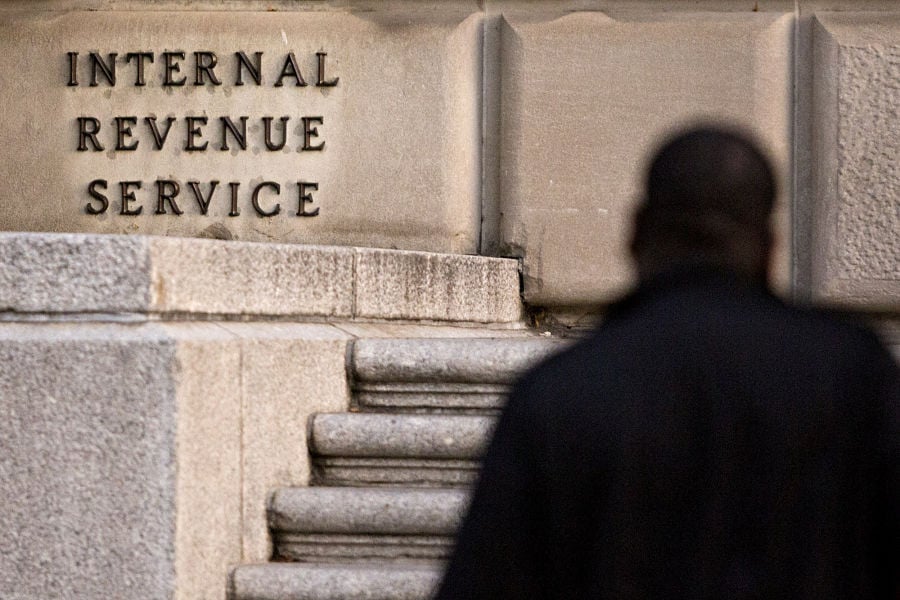

It’s been two years since investors were able to claim tax write-offs for investment costs and advice, but lawyers have found a potential workaround hidden in years-old Internal Revenue Service regulations and case law that may cut tax bills for some private equity and hedge fund investors.
The strategy likely won’t generate a deduction as large as what was previously allowed for financial advisory fees. However, if investors are hiring third-party advisers for assistance picking complicated assets, including distressed debt and thinly traded stocks, they may be able to recoup some of the lost tax benefits, according to a note that advisory firm RSM US sent clients Thursday.
The 2017 tax law eliminated the “miscellaneous itemized deduction” for investment management and financial planning fees if they exceeded 2% of taxpayer’s income. The change was a blow to investors who pay large sums to advisers on tax, legal and financial issues.
Now that these fees aren’t deductible, some may be “capitalizable” — essentially included in the purchase cost of the asset, which would minimize the tax bill when the asset is sold. The IRS, in regulations dating back to 2003 and case law from the 1980s, has argued in favor of investors using this strategy, said Don Susswein, a principal at RSM.
“This is absolutely the right answer as a matter of tax policy,” Mr. Susswein said.
Pricing assets
Here’s how it works: Investors can take the fees they pay to third-party financial advisers, lawyers, accountants, appraisers and others to facilitate the acquisition of an investment and include that cost in the total amount they paid for the asset, which is known as capitalizing an asset. When they sell the asset, the fee would be included in the total price paid for the asset, meaning the investor would be taxed on less gain.
For example, if an investor pays $100 for an asset and $10 finder’s fee to an adviser, then sells the asset later for $150, they’d only pay taxes on $40, rather than the full $50 of the asset's appreciation.
This strategy could also apply to the amount paid for third parties to investigate or pursue assets, including those acquired through a managed account or an investment partnership. For example, fees paid to advisers to find and select assets including loans, equity interest, derivative and royalty streams could qualify.
It’s not a sure-fire tax strategy by any means. Investors won’t see tax savings for research fees they pay to pursue a deal that is never executed. Investors who mostly focus on passive investments probably can’t use this strategy. And it heavily depends on the “facts and circumstances” of the investment, Mr. Susswein said.
Despite prior case law and regulations, it’s also unclear how the IRS would view capitalizing these costs in light of the 2017 law change. The IRS didn’t immediately respond to a request for comment.
Creative lawyers
This strategy is one of many that creative lawyers and accountants have devised since the 2017 tax law that lowered tax rates for individuals and corporations but limited several popular credits and deductions. The IRS blocked some attempts to skirt the law’s $10,000 cap on deductions for state and local taxes, but the agency hasn’t halted other methods like using Alaskan trusts or pass-through businesses to minimize the tax hit.
Investors also may be able to capitalize some or all of the legal fees and retainers paid to attorneys if their advice related to the purchase, according to the RSM note. Investment partnerships could also opt to capitalize portions of a managing partner’s salary, the advisory firm said.
The workaround won’t make up for the entirety of the lost deduction, and investors have to wait until they sell most assets before they see any benefits, though some debt instruments may provide savings sooner. However, it could still provide significant savings for some large investors, Mr. Susswein said.
”If you are committed to passive investing, you’re not going to change because of this,” he said. “If you have significant portion of actively managed investments, this could be important.”

Relationships are key to our business but advisors are often slow to engage in specific activities designed to foster them.

Whichever path you go down, act now while you're still in control.

Pro-bitcoin professionals, however, say the cryptocurrency has ushered in change.

“LPL has evolved significantly over the last decade and still wants to scale up,” says one industry executive.

Survey findings from the Nationwide Retirement Institute offers pearls of planning wisdom from 60- to 65-year-olds, as well as insights into concerns.
Streamline your outreach with Aidentified's AI-driven solutions
This season’s market volatility: Positioning for rate relief, income growth and the AI rebound
